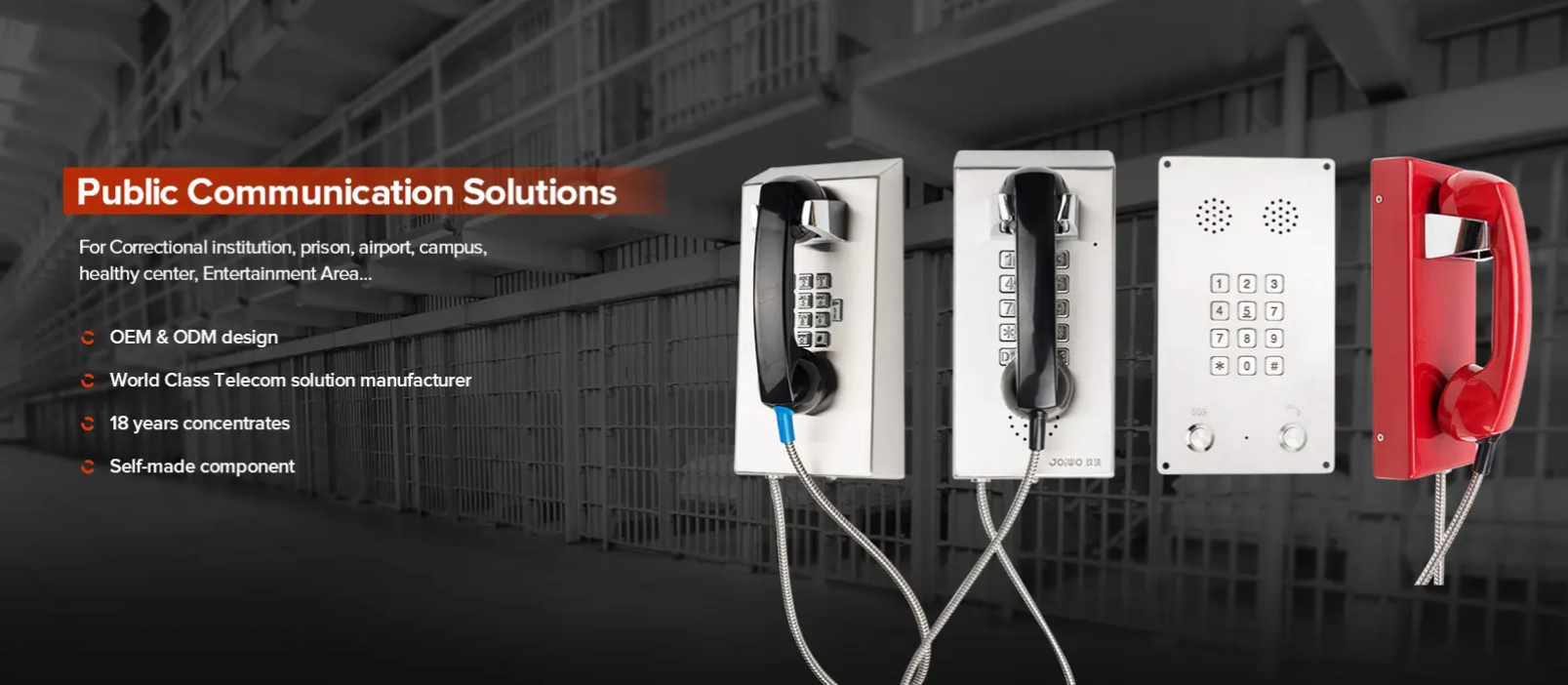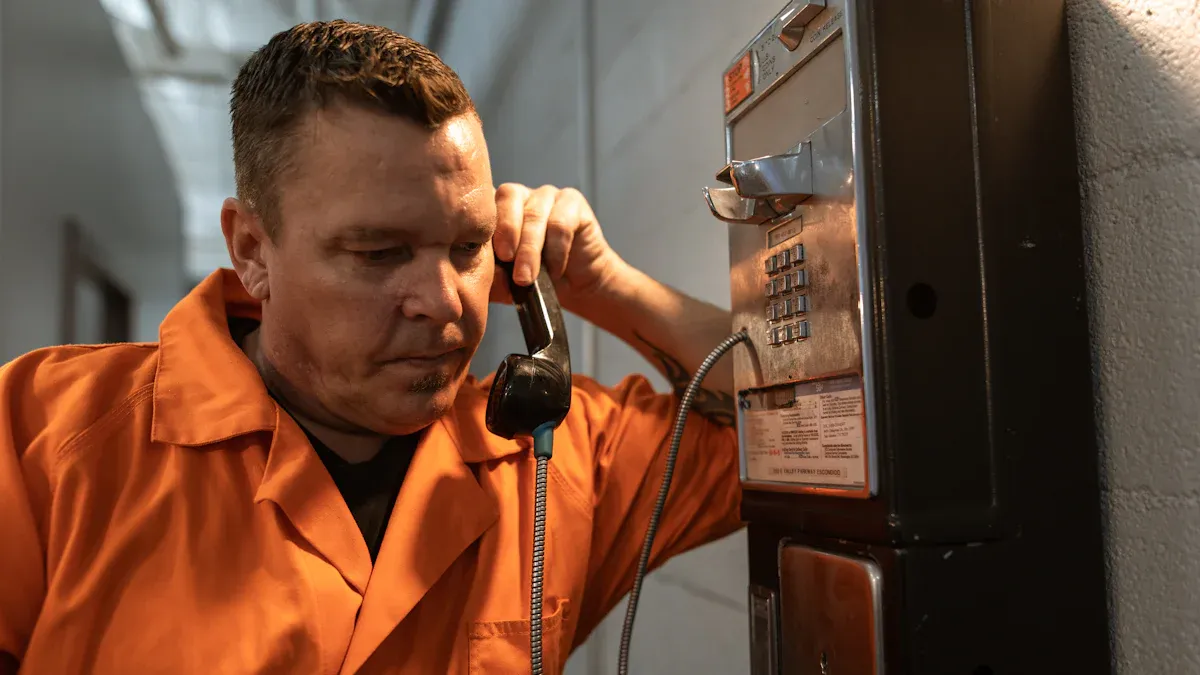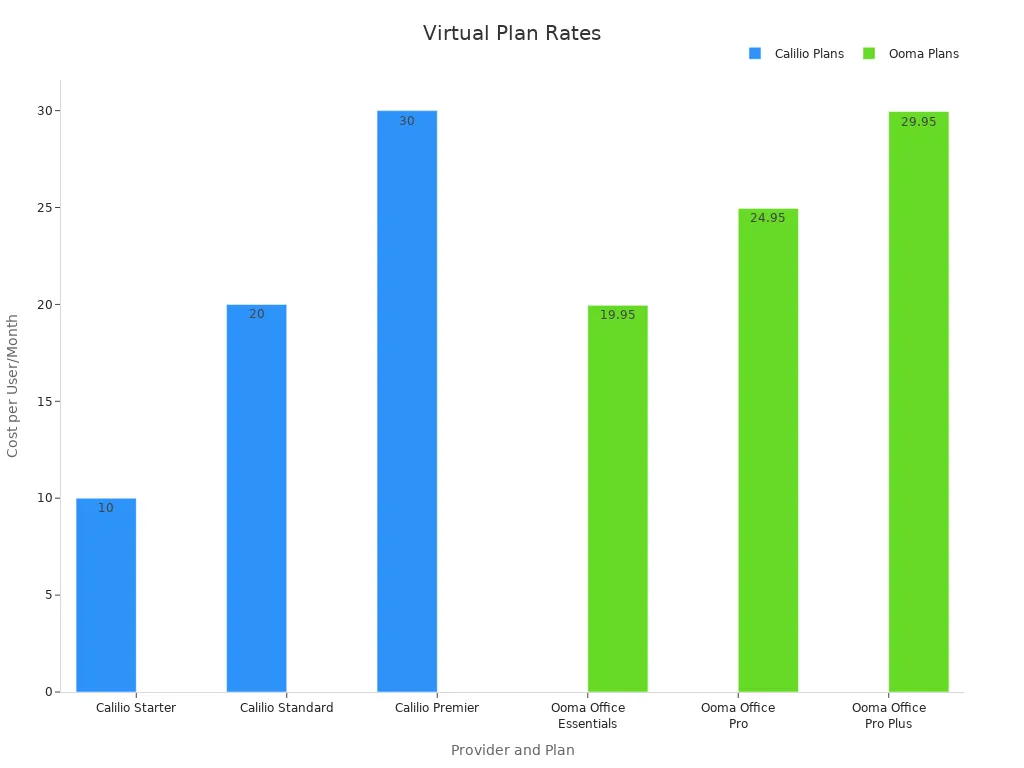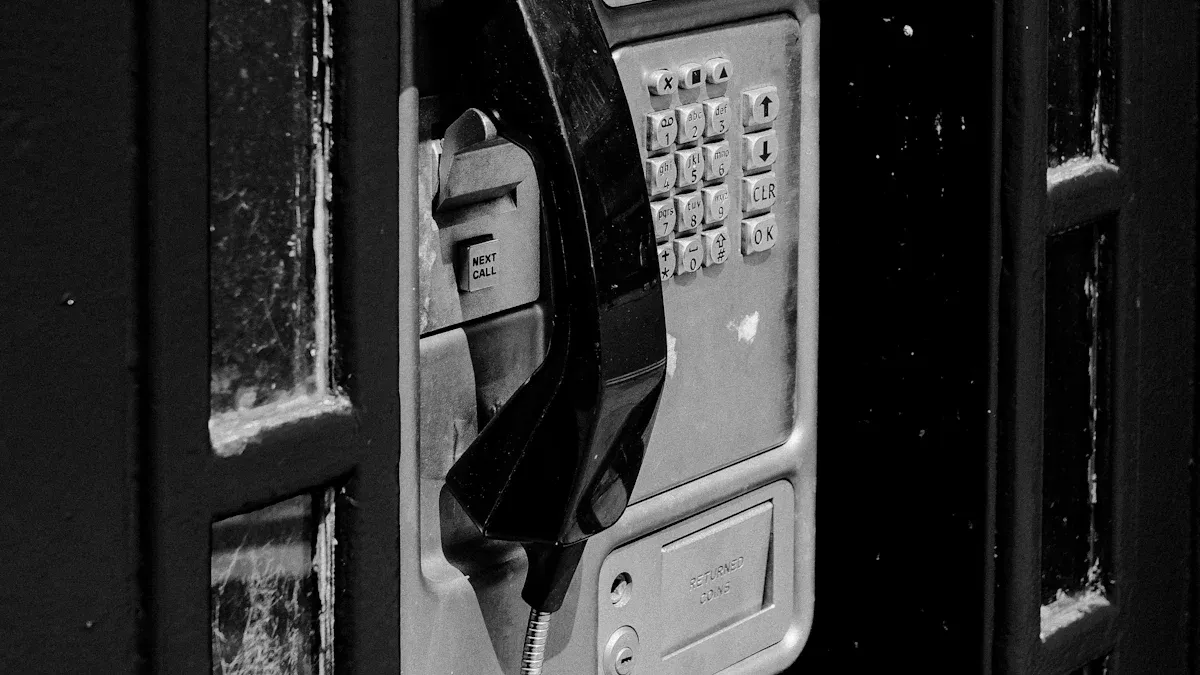
Jail phone costs create a heavy financial burden for families. Monthly expenses for these calls can reach $50 to $100, which is significant for households where two-thirds of individuals in jail earn less than $12,000 annually. This strain often worsens mental health challenges for both inmates and their loved ones.
Maintaining contact with incarcerated individuals plays a crucial role in reducing recidivism. Studies show that one visit per month can lower the risk of reincarceration by 0.9%, while each unique visitor reduces reconviction rates by 3%. Regular communication, through secure jail phone systems or other means, fosters emotional support and improves rehabilitation outcomes.
By exploring methods to lower the cost of jail phone accounts, families can stay connected without excessive financial stress. These strategies can also make Lower Buckeye jail phone calls more affordable, ensuring that maintaining relationships remains a priority.
Key Takeaways
- Look for special jail phone plans to save money. Check for discounts and prepaid choices to lower costs.
- Use internet calling services like Skype or Google Voice. These can make calls much cheaper by using the internet.
- Use free or cheap call days from jails. Plan calls on these days to save a lot of money.
- Keep calls short to spend less. Talk about important things first to save time and money.
- Support changes to make jail phone rates cheaper. Help groups fighting for fair prices and follow new laws.
Choose the Right Jail Phone Plan

Research phone plans offering discounts for jail calls
Families can save significantly by selecting phone plans designed for jail calls. Specialized plans often provide lower rates, making communication more affordable. For instance:
- Some providers offer discounts for linking a VoIP account to a local number near the correctional facility.
- Prepaid plans from VoIP services allow families to purchase minutes in bulk at reduced rates.
- Regulatory actions have also addressed excessive interstate calling rates, leading to more reasonable costs.
These options ensure families can maintain contact without overspending. Increased call volumes after reforms highlight how affordable plans benefit families by reducing financial stress.
Look for providers with lower per-minute rates for correctional facilities
Comparing per-minute rates among providers is essential. Rates can vary widely depending on the facility type and provider. The table below illustrates average costs:
| Facility Type | Mean Cost per Minute |
|---|---|
| Prisons | $0.091 |
| Jails | $0.084 |
Families should prioritize providers offering competitive rates for their specific facility type. Lower rates enable more frequent communication, fostering stronger connections with incarcerated loved ones.
Consider prepaid plans to avoid hidden fees
Prepaid plans offer a transparent and cost-effective solution for jail phone calls. Unlike contract plans, they eliminate hidden fees and provide flexibility. The table below compares prepaid and contract plans:
| Feature | Prepaid Plan | Contract Plan |
|---|---|---|
| Monthly Cost | $40 | $52.37 |
| Cost per Minute | $0.10 | Varies (often higher) |
| Flexibility | No long-term contract | Binding contract |
| Hidden Fees | None | Often present |
Prepaid plans allow families to control expenses while avoiding unexpected charges. This option ensures affordability and simplicity, making it an excellent choice for managing jail phone costs.
Use VoIP Services for Jail Phone Calls
Explore VoIP options like Skype or Google Voice for cheaper rates
VoIP services, such as Skype and Google Voice, offer a cost-effective alternative to traditional jail phone systems. These services reduce expenses by utilizing the internet for voice communication rather than relying on costly infrastructure. Families can benefit from:
- Lower infrastructure costs, as VoIP systems operate on standard hardware.
- Simplified maintenance, which reduces the need for expensive oversight.
- Free connections between users on the same VoIP network, such as Skype-to-Skype calls.
By switching to VoIP, families can significantly cut down on communication expenses. For example, Skype allows free calls between its users, which can eliminate charges entirely for some conversations. This approach ensures that staying connected with incarcerated loved ones remains affordable and accessible.
Set up a local number to reduce long-distance charges
Setting up a local phone number through VoIP services can help families avoid long-distance fees. Calls within the same rate center are billed as local, leading to lower costs. Families can achieve savings by aligning their phone numbers with the correctional facility’s area code. Key benefits include:
- Avoiding long-distance charges by understanding and utilizing rate center boundaries.
- Optimizing calling strategies to ensure all calls are billed at local rates.
- Leveraging internet-based VoIP systems for reduced long-distance and international charges.
For example, a family living in a different state can use a VoIP service to create a local number matching the facility’s area code. This strategy ensures that calls are charged at local rates, making frequent communication more affordable.
Ensure the facility allows VoIP services before committing
Before committing to a VoIP service, families should confirm that the correctional facility permits its use. Policies regarding VoIP services vary by location, and some facilities may restrict their use. Facilities that allow VoIP services often report lower call costs. For instance:
| Evidence Description | Impact on Call Rates |
|---|---|
| Price drop of 61% for 15-minute calls after banning kickbacks in California | Significant decrease in call rates |
| Missouri’s low rates of $1.00 + $0.10/minute after eliminating commissions | Demonstrates optimization of cost structure |
| GTL charges $0.70 in Rhode Island vs. $2.75 in Alabama due to kickbacks | Indicates potential for lower rates without commissions |
Families should research the facility’s policies and choose a VoIP provider accordingly. This ensures compliance with regulations while maximizing savings on jail phone calls.
Leverage Free or Discounted Jail Phone Call Days
Check if the facility offers free or reduced-cost call days
Many correctional facilities provide free or discounted call days to help families stay connected. These days often coincide with holidays or special events. Families should contact the facility to inquire about such opportunities. Facility websites or administrative offices usually provide this information. Knowing when these days occur allows families to plan ahead and save money on communication expenses.
Plan calls around these days to maximize savings
Scheduling calls during free or discounted days can significantly reduce costs. Families should prioritize important conversations for these days to make the most of the opportunity. For example, they can use these calls to discuss urgent matters or provide emotional support. Keeping a calendar of the facility’s discounted call days ensures families never miss a chance to save.
Tip: Encourage loved ones to prepare topics in advance. This ensures that conversations remain meaningful and focused, even with limited time.
Advocate for more frequent discounted call opportunities
Advocating for policy changes can lead to more frequent discounted call days. Families can join local organizations or community groups that push for fairer communication costs. Writing letters to facility administrators or attending public meetings can also make a difference. Highlighting the positive impact of affordable communication on inmates’ rehabilitation may encourage facilities to expand these programs.
Note: Consistent advocacy efforts have led to reduced rates in some states. Families working together can create meaningful change.
Manage Jail Phone Call Time Effectively
Set a time limit for each call to avoid excessive charges
Setting a specific time limit for jail phone calls can help families manage costs effectively. By capping call durations, families can avoid unnecessary expenses while ensuring regular communication. The Federal Communications Commission (FCC) has implemented rate caps to make calls more affordable. For instance:
| Type of Facility | Maximum Total Interstate Rate Cap (per minute) |
|---|---|
| Prisons | $0.14 |
| Jails with 1,000 or more incarcerated people | $0.16 |
| Jails with less than 1,000 incarcerated people | $0.21 |
These caps reduce financial strain on families and encourage more frequent, shorter calls. Additionally, the FCC estimates that lowering interstate rates to $0.14 per minute for prisons and $0.16 per minute for jails could generate $7 million in direct benefits. Increased call volumes may also reduce recidivism, saving over $23 million in prison operating costs.
Prioritize important topics to make the most of limited time
Focusing on essential topics during calls ensures that families use their time wisely. This approach minimizes the need for extended conversations, which can lead to higher costs. Legislative reforms, such as Illinois’ reduction of call rates to $0.07 per minute, have shown that prioritizing communication can alleviate financial burdens. Families can prepare a list of discussion points before each call to stay organized and efficient.
- Lower call rates provide significant financial relief for families.
- Reduced reliance on commissions from phone calls benefits both families and the state.
- Bipartisan support for such reforms highlights their importance in maintaining family connections.
Use alternative communication methods like letters or emails
Exploring alternative communication methods can further reduce costs. While phone calls remain the primary form of contact, letters and electronic messaging offer affordable options.
| Communication Method | Cost Implications | Notes |
|---|---|---|
| Phone Calls | Capped at $0.11-$0.22 per minute | High costs due to monopoly contracts |
| Postal Communication | Slower delivery, less practical for time-sensitive communication | Affected by USPS service cutbacks |
| Electronic Messaging | Emerging as a popular alternative | Convenient for users and administrators |
Regular communication, regardless of the method, strengthens family bonds and improves post-release outcomes. Families should consider combining these methods to maintain consistent contact while managing expenses.
Explore Virtual Landline Options for Jail Phone Calls
Set up a virtual landline with a local area code
A virtual landline with a local area code can significantly reduce communication costs for families. This setup allows calls to be billed as local rather than long-distance, which lowers fees. Virtual landlines operate through the internet, making them a flexible and affordable option.
- A local phone number helps establish a connection with the correctional facility’s area.
- Callers are more likely to use a number with a familiar area code, avoiding long-distance charges.
- For example, a Canadian family with a loved one in Michigan can use a Michigan area code to reduce costs and enhance communication.
Virtual landlines also provide additional features like voicemail and call forwarding, ensuring families never miss important updates.
Reduce long-distance fees by matching the facility’s area code
Matching the area code of the correctional facility is a simple yet effective way to cut down on long-distance fees. Many virtual landline providers allow users to select an area code that aligns with the facility’s location. This strategy ensures that calls are charged at local rates, even if the family resides in a different state or country.
Families can save money by understanding how rate centers work. Calls within the same rate center are billed as local, which eliminates unnecessary charges. Virtual landlines make this process seamless by offering customizable area codes. This approach ensures affordable communication while maintaining consistent contact with incarcerated loved ones.
Compare virtual landline providers for the best rates
Choosing the right virtual landline provider is essential for maximizing savings. Providers offer various plans with different features and pricing. Families should compare options to find the best fit for their needs.
| Provider | Plan Type | Cost (per user/month) | Features |
|---|---|---|---|
| Calilio | Starter | $10 | User-friendly interface, call analytics, voicemail transcription, sentiment analysis |
| Standard | $20 | ||
| Premier | $30 | ||
| RingCentral | Core | $20 – $30 | Call parking, paging, call flip, shared line |
| Advanced | $25 – $35 | ||
| Ultra | $35 – $45 | ||
| Ooma | Office Essentials | $19.95 | Unlimited calling to Puerto Rico and Mexico |
| Office Pro | $24.95 | ||
| Office Pro Plus | $29.95 | ||
| Nextiva | Digital | $20 – $25 | Limitless calling, nationwide texting |
| Core | $30 – $35 | ||
| Engage | $40 – $50 | ||
| Power Suite | $60 – $75 |

Most virtual landline plans include unlimited calling within the US and Canada. However, some providers charge extra for toll-free calls or SMS messaging. Families should carefully review plan details to ensure they select the most cost-effective option.
By setting up a virtual landline, matching area codes, and comparing providers, families can significantly reduce the financial burden of jail phone calls. This method ensures affordable and reliable communication with incarcerated loved ones.
Advocate for Policy Changes to Reduce Jail Phone Costs

Support organizations fighting for fair jail phone rates
Organizations advocating for fair jail phone rates play a crucial role in reducing financial burdens on families. Groups like the Prison Policy Initiative and Worth Rises work tirelessly to highlight the impact of high communication costs on low-income households. These organizations often provide resources, conduct research, and push for legislative reforms.
Supporting these groups can amplify their efforts. Individuals can contribute by donating, volunteering, or spreading awareness about their campaigns. For example, the Martha Wright-Reed Just and Reasonable Communications Act, introduced in 2019 and passed in 2023, became a reality due to persistent advocacy. This act regulates prison phone rates, ensuring families can stay connected without excessive costs.
Petition local and state governments to regulate call costs
Petitioning local and state governments is an effective way to push for fairer jail phone rates. Legislators often respond to public demand, especially when it highlights the struggles of vulnerable communities. Writing letters, signing petitions, or attending public hearings can make a significant difference.
Massachusetts recently became the fifth state to approve free jail and prison phone calls. This milestone demonstrates the power of collective action. Families and advocates can use this success as a model to encourage similar changes in other states. Lowering call rates, as seen in Illinois where rates dropped to 1 to 2 cents per minute, shows how policy changes can alleviate financial strain on families.
Stay informed about legislative changes affecting jail phone communication
Staying informed about legislative updates ensures families and advocates can act quickly when opportunities arise. Monitoring changes at both state and federal levels helps individuals understand their rights and the progress of ongoing reforms.
The Federal Communications Commission (FCC) has capped phone call prices in prisons and jails, reducing costs for many families. Rates now range from 12 to 25 cents per minute for small and medium-sized jails. These caps represent a significant improvement but highlight the need for continued advocacy. Personal stories, like Nziki Wiltz’s account of financial struggles due to incarceration, emphasize the importance of staying engaged with policy developments.
By supporting organizations, petitioning governments, and staying informed, families and advocates can work together to reduce the cost of jail phone communication. These efforts ensure that maintaining connections with incarcerated loved ones remains affordable and accessible.
Take Advantage of FCC Regulations and State Laws
Understand the FCC’s caps on jail phone call rates
The Federal Communications Commission (FCC) has implemented caps on jail phone call rates to protect families from excessive charges. These regulations set maximum rates for both interstate and intrastate calls. For example, the FCC limits interstate calls from prisons to $0.14 per minute and from larger jails to $0.16 per minute. Smaller jails have a slightly higher cap of $0.21 per minute. These caps ensure that families can afford to stay connected without facing financial hardship.
Families should familiarize themselves with these rate limits to avoid overpaying. If a provider charges more than the FCC’s cap, families can report the issue directly to the FCC. Understanding these protections empowers families to advocate for fair treatment and ensures compliance from service providers.
Research state laws offering free or reduced-cost jail phone calls
Some states have gone beyond federal regulations by introducing laws that provide free or reduced-cost jail phone calls. For instance, Massachusetts recently approved legislation making all jail and prison calls free. Similarly, Illinois reduced its rates to as low as $0.07 per minute. These state-level initiatives aim to alleviate the financial burden on families and promote regular communication with incarcerated individuals.
Families should research the specific laws in their state to determine if they qualify for reduced rates or free calls. State government websites and advocacy organizations often provide detailed information about these programs. Staying informed about local policies can help families take full advantage of cost-saving opportunities.
Monitor updates on new regulations to maximize savings
Regulations surrounding jail phone rates continue to evolve. Families should stay updated on changes at both the federal and state levels. Advocacy groups, such as the Prison Policy Initiative, regularly publish updates on new laws and policies. Subscribing to newsletters or following these organizations on social media can help families stay informed.
Monitoring updates ensures that families can quickly adapt to new cost-saving measures. For example, recent FCC rulings have expanded protections to include video calls and other communication services. By staying informed, families can maximize their savings and maintain consistent contact with their loved ones.
Reducing prison phone call rates requires a combination of practical strategies and informed decision-making. Families can explore affordable phone plans, VoIP services, and virtual landlines to cut costs. Leveraging free call days and managing call time effectively also helps save money. Advocacy for policy changes and staying updated on FCC regulations ensures long-term benefits.
Tip: Small steps, like researching local laws or setting up a prepaid plan, can make a big difference.
Staying connected with loved ones strengthens relationships and supports rehabilitation. Families should take action today to ease financial burdens while maintaining meaningful communication.
FAQ
1. Why are jail phone calls so expensive?
Jail phone calls cost more due to exclusive contracts between correctional facilities and service providers. Providers often pay commissions to facilities, which increases rates for families. These monopolies limit competition and keep prices high.
2. Can families use VoIP services for jail calls?
Yes, VoIP services like Skype or Google Voice can reduce costs. Families should confirm facility policies before using these services. Some facilities restrict VoIP usage, but others allow it, making it a viable option for cheaper communication.
3. What are FCC regulations on jail phone rates?
The FCC caps interstate call rates at $0.14 per minute for prisons and $0.16 per minute for larger jails. Smaller jails have a cap of $0.21 per minute. These regulations aim to protect families from excessive charges.
4. How can families advocate for lower jail phone costs?
Families can join organizations like the Prison Policy Initiative or Worth Rises. Writing petitions, attending public hearings, and contacting legislators can push for fairer rates. Advocacy efforts have led to free calls in some states.
5. Are virtual landlines a good option for jail calls?
Virtual landlines with local area codes reduce long-distance fees. Families can choose providers offering affordable plans and features like voicemail. This method ensures calls are billed as local, saving money on communication costs.
Post time: Apr-30-2025
